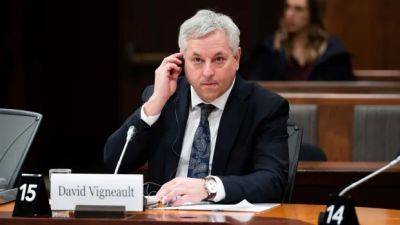Alberta energy grid woes renew concerns over climate change and infrastructure
Alberta’s recent energy grid woes have renewed concerns about how prepared Canada’s critical infrastructure systems are to weather the effects of climate change and extreme weather — and the potential security implications if they fail.
On Monday, the Alberta Electric System Operator (AESO) issued renewed calls for people in the province to limit their energy use after severe cold weather and “several” power facility outages had threatened rolling blackouts.
It was the fourth such alert issued by the organization since Friday, and urged Albertans to limit their power consumption during peak periods.
Cold weather in Western Canada is nothing new, but neither are concerns that Canada’s critical infrastructure systems – power grids, telecommunications systems, and finance and transportation networks, to name a few – are not prepared for more extreme weather events exacerbated by climate change.
The federal government has taken what’s known as an “all hazards” approach to critical infrastructure risks – essentially that all risks, from climate change to terrorist attacks to nation-state hacking, have to be considered when thinking about systems like power grids or telecommunications networks.
“The first sign of World War Three is that your lights are going to go off,” Aaron Shull, the managing director of the Centre for International Governance Innovation, said in an interview with Global News Wednesday.
“That’s the world that we live in. So ‘all hazards,’ but a preference for the fact that we’re in this world where hostile or adversarial states are now seeking advantage on the back of our critical infrastructure.”
Managing critical infrastructure is a shared responsibility between Canada’s three levels of government, as well as







